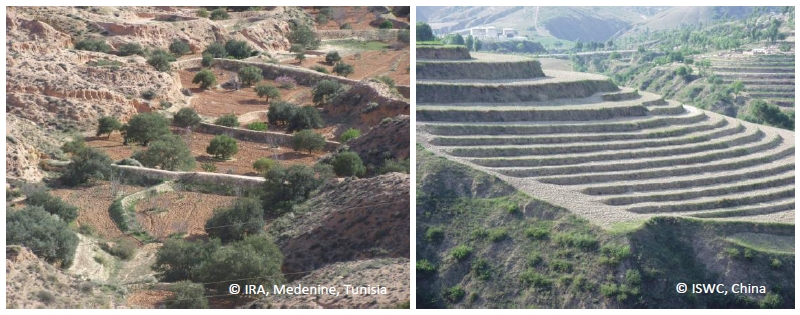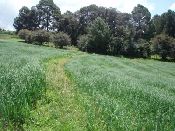|
New research uses the world's arid regions to protect global food supplies
Today is Desertification Day, a day to focus on desertification problems around the world, and this year researchers are joining hands with farmers around the world to stand up to one of the greatest, yet most overlooked environmental problems.
As the global economy shows the first tentative signs of recovery, many fear that a repeat of last year's rocketing food prices may be just around the corner. Many fear that food shortages can only get worse in future, as rising seas swamp productive land and India and China's middle classes demand more and better food. Nowhere will it be harder to keep food on the table than in the driest parts of the world, which are already suffering from "desertification" - an insidious process where land loses its fertility and is unable to keep producing food.
But what exactly is desertification? It is not about the spread of sandy deserts, but all about the threats to water supply, continuing productivity of soils, diminishing livelihoods, poverty and human security. There is a United Nations Convention to Combat Desertification, similar to the Convention to address climate change, with a message specifically for today: "Desertification, land degradation and drought threaten human security by depriving people of their means of lifem - by taking away food, access to water, the means for economic activities, and even their homes." Professor Jeffrey Sachs, Director of Earth Institute at Columbia University and Special Advisor to the United Nations Secretary-General Ban Ki-Moon and the Millennium Development Goals, recently asserted that "Water supplies are increasingly under stress in large parts of the world, especially in the world's arid regions. Rapidly intensifying water scarcity reflects bulging populations, depletion of groundwater, waste and pollution, and the enormous and increasingly dire effects of manmade climate change."
This isn't an isolated problem. Many analysts believe that around a third of the planet's surface - about the same size as Europe - is affected by desertification. There is a great deal at stake - safeguarding the livelihoods of more than 1.5 billion people living in dry regions. But the crucial question in order to give a future to these people is: can desertification be reversed?
 Strategies for sustainable land management: "jassour" in Tunisia (left) and terraces in China (right)
A group of researchers from 18 countries in Latin America, Central America, Africa, Asia and Europe are joining forces with farmers around the world to try and do just this, supported by civil society organizations. A €9 million European Union research project is combining cutting-edge science with local ingenuity to recover 16 of the worst affected areas around the world from desertification by carefully chosen sustainable land management policies, strategies and techniques.
To combat desertification we can both encourage governments to take the problems more seriously, and we can also help local people to help themselves. The DESIRE project - Desertification and Remediation of Land - does both. The objective of DESIRE is to choose, test and adopt scientifically validated strategies for the remediation of land. Professor Coen Ritsema, Coordinator of the DESIRE, explains that "In merging science and local knowledge we are identifying and testing the most promising strategies to combat desertification. Although the actual techniques, such as land terracing or avoidance of ploughing to increase water stored in the soil are not necessarily new, the increased cooperation and enthusiasm for improvement is tangible, and the DESIRE methods can be taken and copied all over the world." It is the bottom-up, participatory approach, in which stakeholders work with scientists, that makes DESIRE novel compared to other projects on desertification.
A wide range of practical guidelines in non-scientific language are being prepared, for access through the DESIRE website and in other media best suited to a variety of users. These will help land users to earn a living, and policy makers to develop policies that stimulate sustainable land management.
|
DESIRE works in 16 degraded dryland areas around the world. The project is funded by the European Union and collaborates with the United Nations Convention to Combat Desertification (UNCCD).
|
Sources of quotes from outside DESIRE:
UNCCD. World Day to Combat Desertification 17 June 2009. Theme: Conserving land and water = Securing our common future. Background note. http://www.unccd.int/publicinfo/june17/2009/docs/Concept_Note_final_EN.pdf
Professor Jeffrey Sachs writing in the Guardian newspaper 26 April 2009:
http://www.guardian.co.uk/commentisfree/cif-green/2009/apr/26/water-shortage
|





